
A Pap smear (or Pap test) is a quick and simple check that looks for early cell changes on the cervix, which is the lower part of your womb that connects to the vagina. These changes often do not cause any symptoms, but they can be early warning signs of cervical cancer.
The purpose of the test is to spot any problems early, when they are easiest to treat. In some cases, a doctor may recommend doing a human papillomavirus (insert HPV Cervical Cancer Vaccine page) (HPV) test alongside your Pap smear, especially if you are over 30 years old. HPV is a common virus that can increase the risk of cervical cell changes, but with regular screening, these issues can be picked up and managed before they become serious.
A Pap smear is one of the simplest ways to protect your long-term health. It only takes a few minutes and is done right in the clinic. While the idea of it might feel uncomfortable or unfamiliar, knowing what to expect can help ease any anxiety.
Here is how it works:
| STEPS | WHAT IT ENTAILS |
| You Will Get Comfortable in a Private Space | You will be asked to lie on an examination couch and provide a sheet for modesty. You will be in a relaxed, private setting, and female doctors are available upon request if that makes you more comfortable. |
| A Gentle Internal Exam Begins | A doctor will gently insert a small instrument called a speculum into the vagina. This opens the vaginal walls slightly so the cervix can be seen clearly. You might feel some pressure, but it should not be painful. |
| A Sample of Cells Is Collected | Using a soft brush or spatula, the doctor will collect a small sample of cells from the surface of your cervix. This part is usually over in seconds. |
| The Sample Is Sent to the Lab | The collected cells are placed on a slide or in a liquid solution and sent to a laboratory. Specialists will examine the sample under a microscope to check for any abnormal or precancerous cells. |
| You will Receive Your Results in 1 to 2 Weeks | The clinic will follow up with you once your results are ready. If everything is normal, no further action is needed until your next scheduled screening. If something unusual is found, the doctor will guide you through the next steps with care and clarity. |
According to the Health Promotion Board (HPB), women are encouraged to undergo a routine pap smear as per below:
| AGE GROUP | RECOMMENDED SCREENING |
| 25 to 29 years old | Pap smears every 3 years. |
| 30 years old and above | HPV test every 5 years (with or without Pap smear, as advised). |
Additionally, a doctor may advise more frequent screening if you:
One of the biggest benefits of pap smears is that they can catch cervical cancer before they worsen.
Cervical cancer often develops slowly, which means there is a valuable window of time to catch and treat any early changes, long before they become dangerous. That is why regular screening is so powerful.
With a simple pap smear, you can:
In fact, with regular screening, your risk of developing cervical cancer can be reduced by up to 90%. It is a small step that offers peace of mind and long-term protection, and it could save your life.
When it comes to women’s health, these three terms are often mentioned together, but they serve very different purposes. Understanding how each works can help you make informed decisions about your care.
| TEST / SERVICE | WHAT IT IS | PURPOSE | WHEN IT IS DONE |
| Pap Smear | A screening test that collects cells from the cervix. | To detect abnormal or pre-cancerous cervical cells early. | Every 3 years from age 25, or every 5 years with HPV co-testing. |
| Pelvic Exam | A physical examination of the vulva, vagina, cervix, uterus and ovaries. | To check for lumps, tenderness, infections, or other gynaecological issues. | As part of a routine check-up or when there are symptoms like pain or discharge. |
| HPV Vaccine | An injection that protects against high-risk strains of the human papillomavirus. | To reduce the risk of cervical cancer and other HPV-related diseases. | Ideally given before sexual activity begins, starting from age 9 up to 26 (can be discussed for older women too). |
Most Pap smear results come back normal, which means you can return to your usual screening schedule. But if the results are unclear or abnormal, do not panic. This does not mean you have cancer.
Pap smears are designed to detect early changes, often long before they become dangerous. Depending on your results, the doctor will guide you in the next steps, which may include monitoring, repeating the test, or further investigation.
Here is a breakdown of what your results might mean:
| RESULT | WHAT IT MEANS | NEXT STEPS |
| Normal | Cervical cells appear healthy. | Continue routine screening once every 3 years (Pap smear) or 5 years (HPV test), depending on age. |
| Unsatisfactory / Inconclusive | The sample was unclear or insufficient for analysis. | A repeat test may be needed in 6 to 12 weeks. |
| Low-Grade Changes (LSIL) | Mild cell changes, often linked to HPV and may clear up on their own. | Repeat Pap or HPV test in 6 to 12 months to monitor changes. |
| High-Grade Changes (HSIL) | More significant cell changes are associated with a higher risk of progression if untreated. | Colposcopy is recommended for closer examination of the cervix. |
| HPV Positive (with or without abnormal cells) | High-risk HPV types are detected, which may increase the risk of cervical cancer. | Follow-up testing or colposcopy, depending on your age and cell changes. |
| Atypical Cells (ASC-US, ASC-H, etc.) | Some cells do not look completely normal but are not pre-cancerous. | Additional testing, such as an HPV test or colposcopy, is needed to clarify the cause. |
The frequency of screening depends on your age, health history and test results. The table below elucidates the frequency:
| SCENARIO | RECOMMENDED FREQUENCY |
| Age 25 to 29 years old, normal results. | Pap smears every 3 years. |
| Age 30+, normal HPV test. | HPV test every 5 years (may include Pap smear). |
| Previous abnormal results. | As advised by our doctor (could be annually). |
| After HPV vaccination. | Still follow screening guidelines. |
| Postmenopausal. | Continue screening until at least age 69 years old, if previous tests were normal. |
| Hysterectomy (with cervix removed). | Pap smears are usually no longer needed, unless due to a cancer history. |
A Pap smear takes just minutes, but its impact can last a lifetime. It is a simple, empowering step you can take to protect yourself, long before any symptoms appear.
At Phoenix Medical Group, we are here to make the experience as comfortable, respectful, and supportive as possible. You can expect:
You deserve to feel confident and cared for at every stage of life. So, take the first step to safeguard your cervical health by booking an appointment with us today.
Most people describe the procedure as slightly uncomfortable but not painful. You may feel some pressure when the speculum is inserted, but the test itself is quick and usually over in a few minutes.
It is best to schedule your Pap smear at least 5 days after your period ends, as menstrual blood can affect the accuracy of the results.
Yes. Pap smears are preventive. Many cervical cell changes do not cause symptoms until the condition is more advanced. So, regular screening is essential, even if you feel perfectly fine.
Yes. The HPV vaccine helps reduce your risk, but it does not protect against all types of HPV. You still need routine screening to catch any potential changes early.
If you have ever been sexually active, you should continue regular Pap smears until at least age 69 years old, depending on your past results.
Absolutely. At Phoenix Medical Group, female doctors are available upon request to help you feel more at ease during the procedure.
Results are usually ready within 1 to 2 weeks. Our doctor will follow up with you and explain what the results mean and what (if anything) needs to happen next.


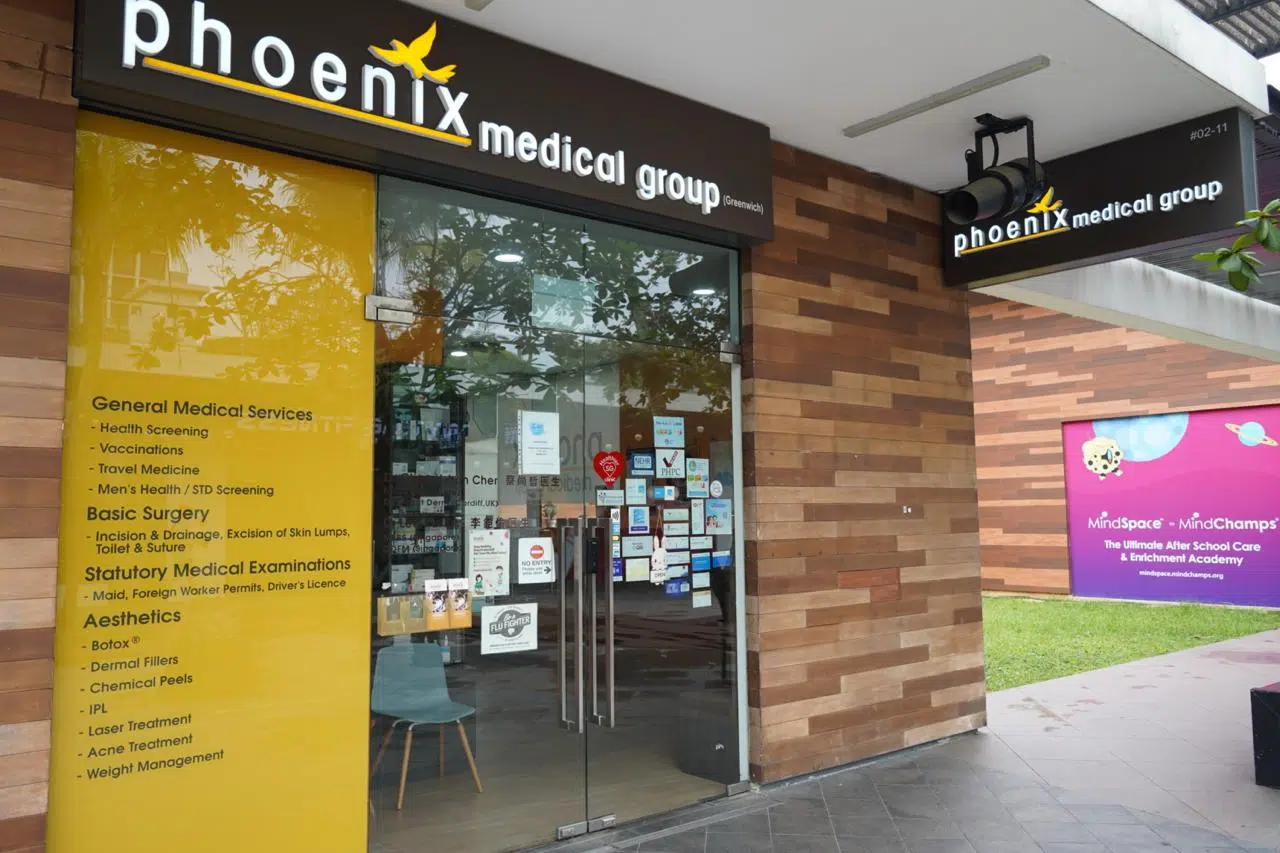
9:00am to 8:30pm
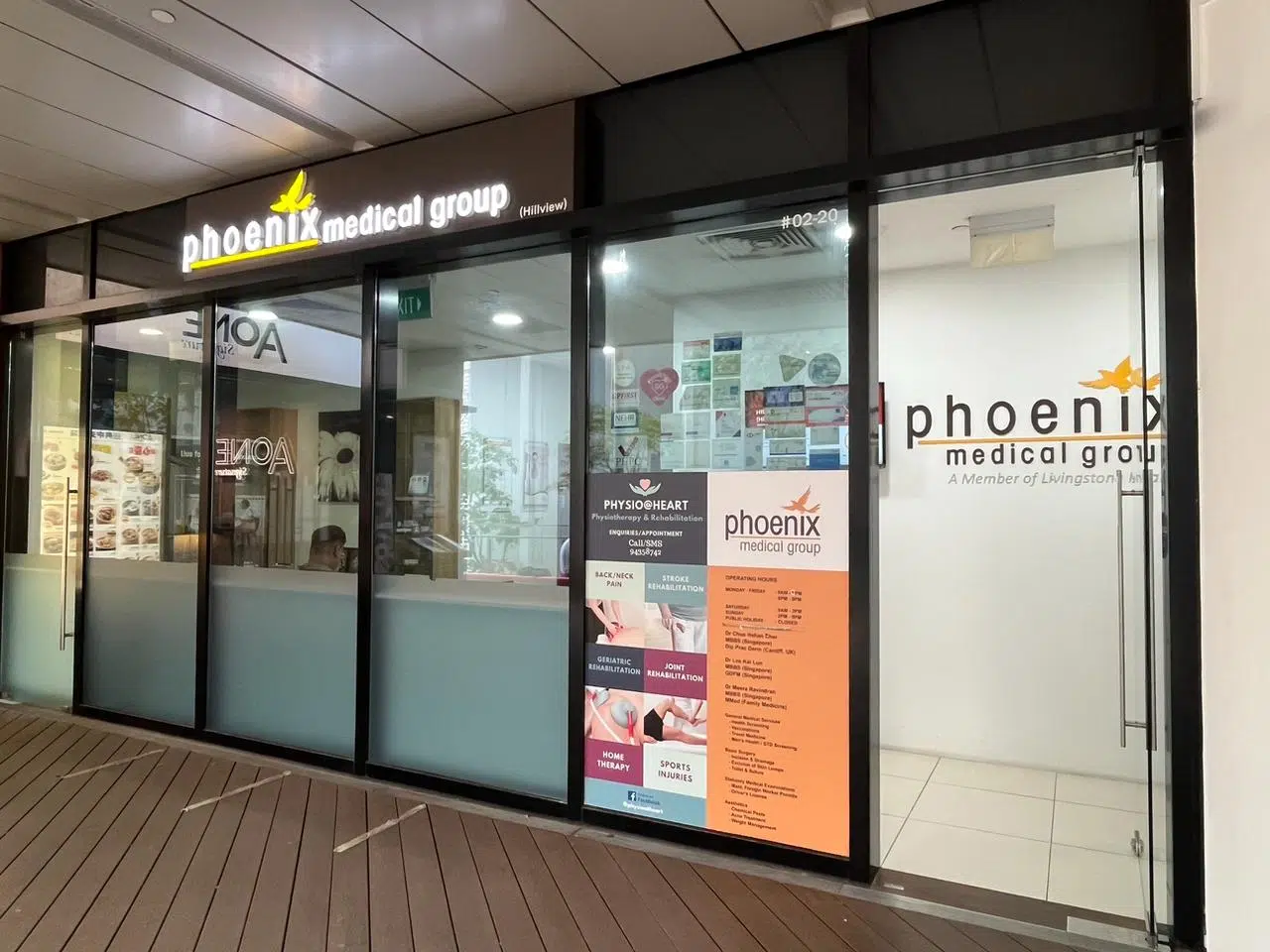
9:00 am - 4:30 pm, 6.00 pm - 8:30 pm
9:00 am - 1:30 pm
2:00 pm - 8:30 pm
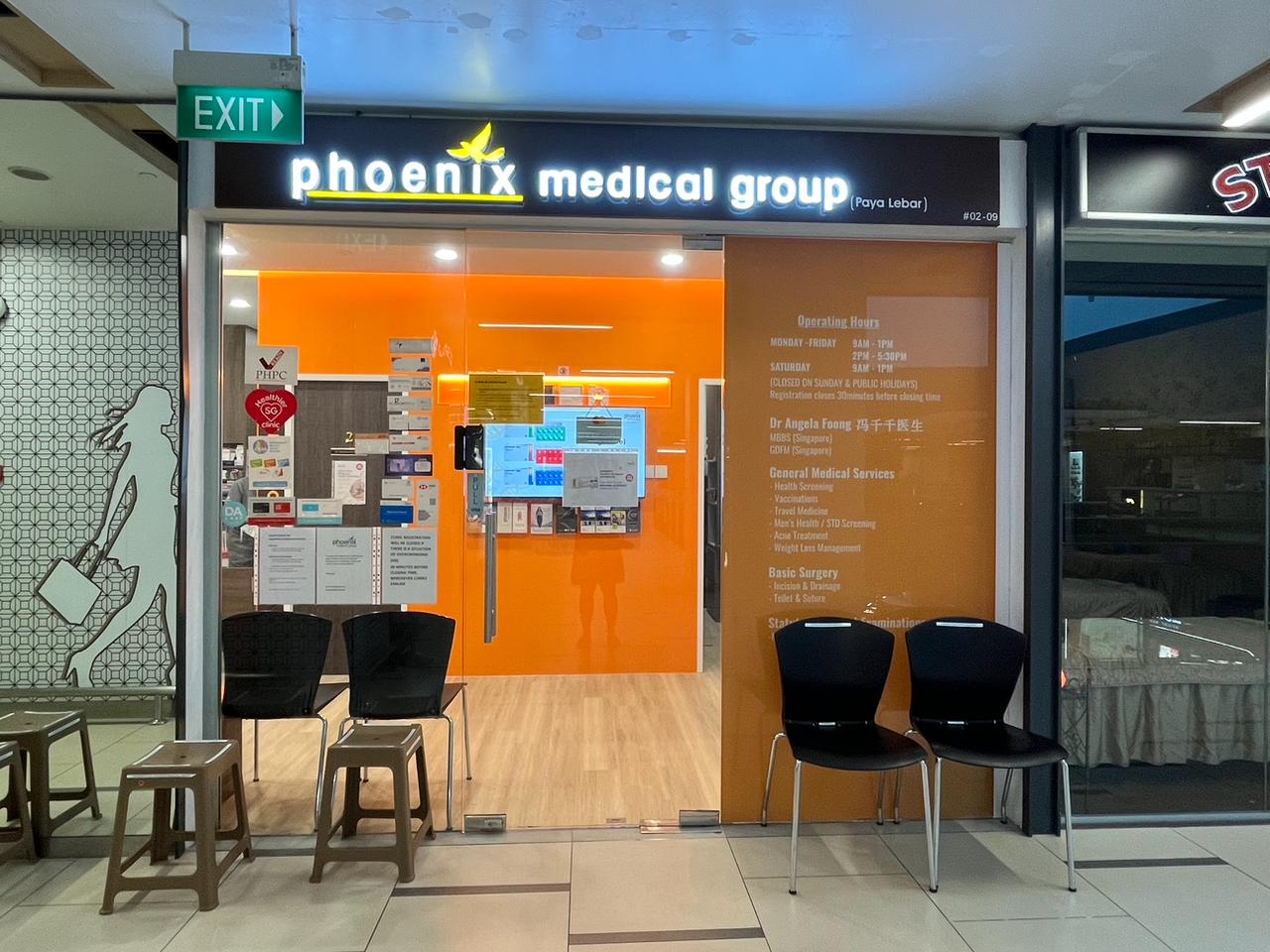
60 Paya Lebar Road, #02-09 Paya Lebar Square, Singapore 409051
9:00 am - 12:30 pm
2:00 pm - 5:00 pm
9:00 am - 12:30 pm

275 Thomson Road,
#01-05 Novena Regency,
Singapore 307645
9:00 am - 2:30 pm
6:00 pm - 8:30 pm (Mon, Tue, Wed & Fri)
9:00 am - 1:30 pm
2:00 pm - 8:30 pm
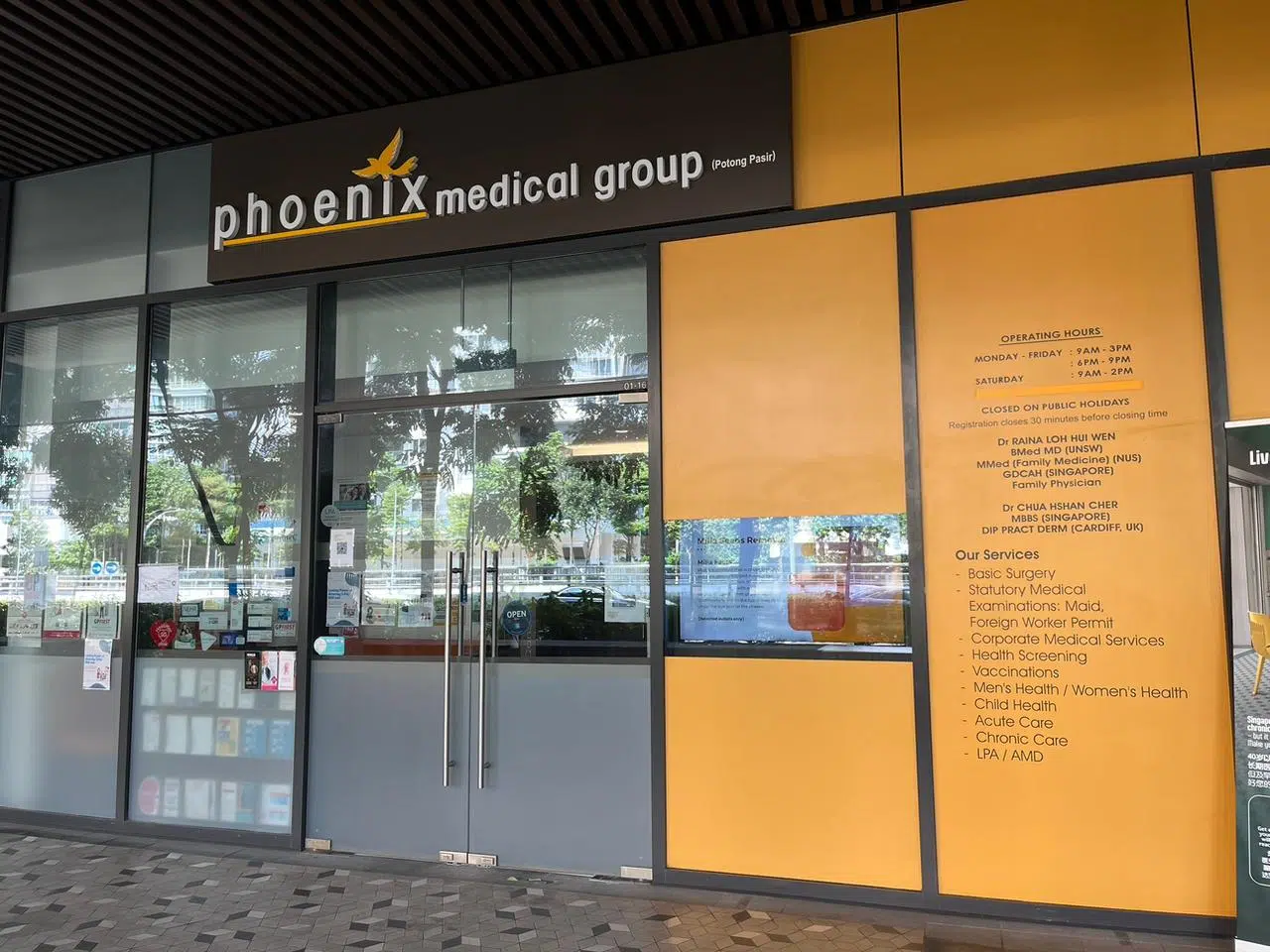
The Venue Shoppes,
2 Tai Thong Crescent, #01-16,
Singapore 347836
9:00 am - 3:00 pm
6:00 pm - 9:00 pm (Mon, Wed & Thu)
9:00 am - 2:00 pm
Closed
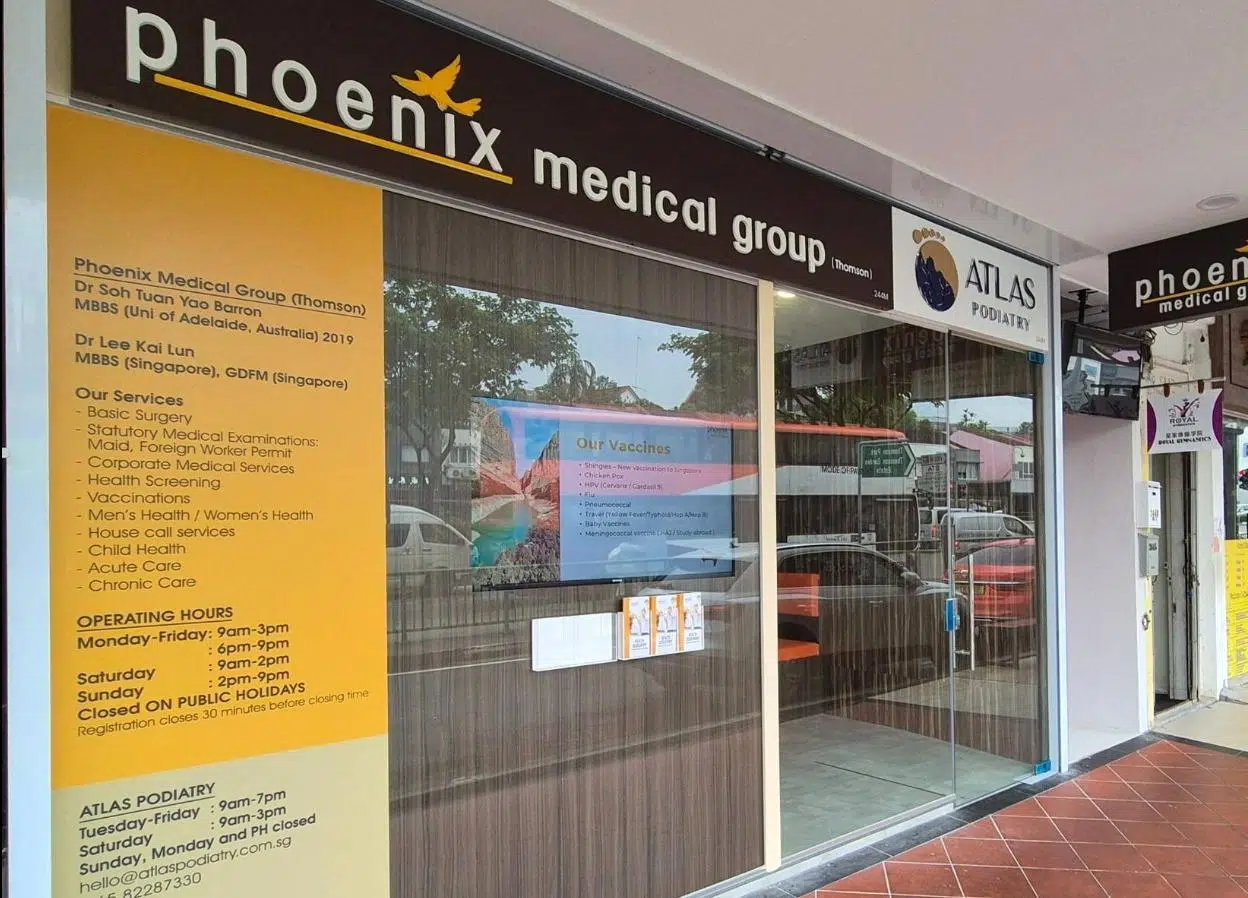
244M Upper Thomson Rd, Thomson Garden Estate, Singapore 574369
9:00 am - 3:00 pm
6:00 pm - 9:00 pm (Mon & Wed)
9:00 am - 2:00 pm
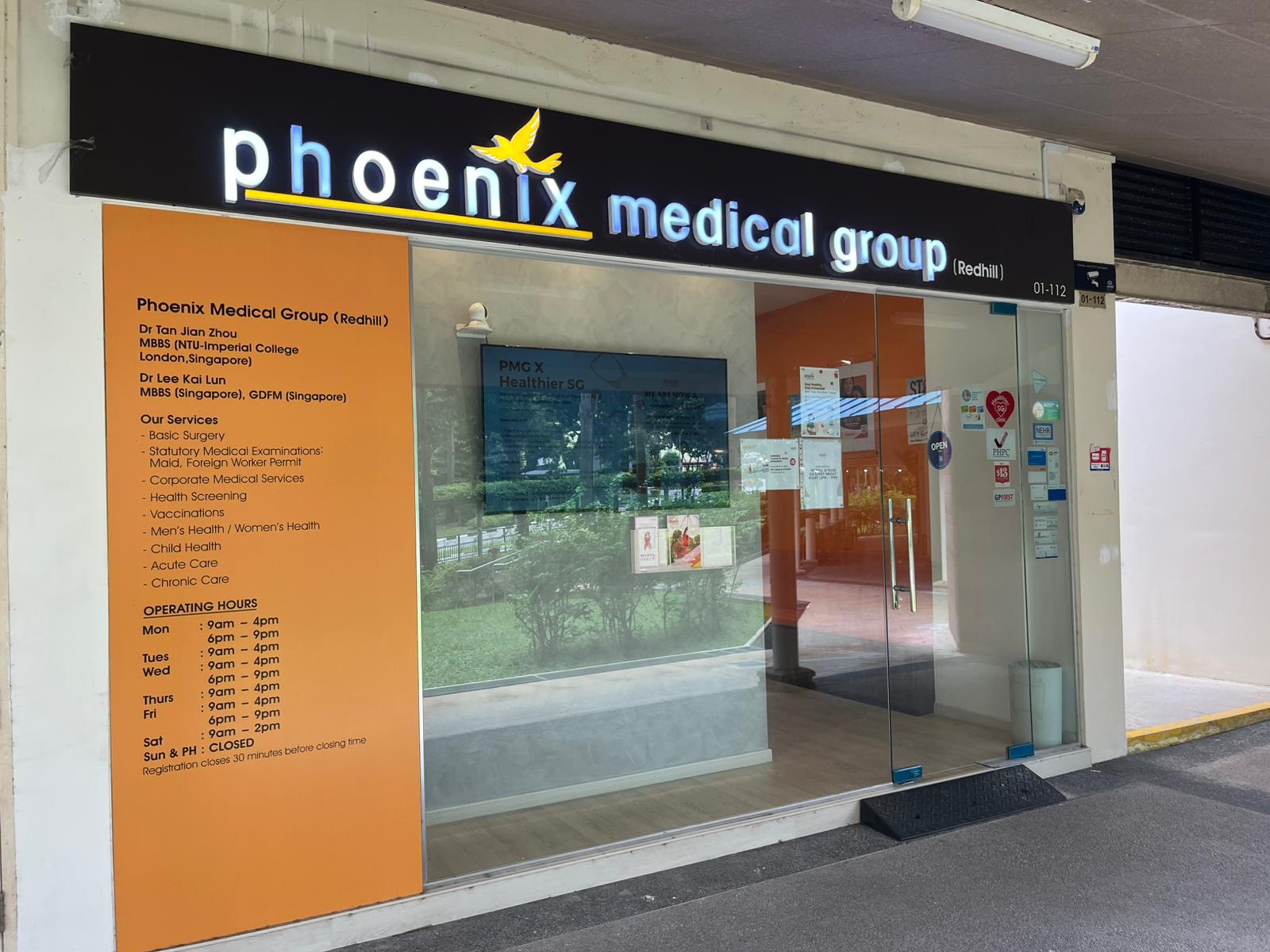
9:00 am - 4:00 pm
6:00 pm - 9:00 pm
9:00 am - 2:00 pm
Closed